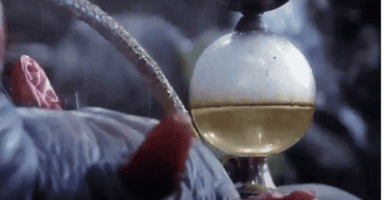Students Turning Mosquitoes Into Flying Syringes
This article is more than 2 years old
At 16, I thought mostly about three things: boobs and everything else. The most evolved thoughts I had about mosquitoes, plentiful at all times of year here in the South, were mostly expletive-laden insults. Joshua Meier is 16 years old, and is the current CEO of Provita Pharmaceuticals, a biotechnology company with over 15 employees, all of which are under the age of 18. These were the kind of peers I needed in high school.

Provita recently announced their plans to turn mosquitoes into “flying syringes,” by genetically engineering them to produce and pass on a malaria vaccine through its saliva, as well as sterilizing them to keep their population growth controlled. The sterilization techniques have been a hot topic for research lately, and the team thinks they know how to get it done, but since their high school can’t possibly cultivate mosquitoes on site, the next step is partnering with an animal facility to allow physical research to be done. It’s always nice to see the “turn the problem into the solution” brand of poetic justice used.
Provita was founded pre-Meier in 2008 at the Bergen County Academies, a group of magnet high school programs with specified areas of education. Some of the science-based programs’ students got together with the business students, and a company was founded. Their first product, still a ways from hitting the market, is Coagula, with a goal of decreasing the numbers of injections hemophiliacs and von Wildebrand sufferers need from several times a week, to only several times a year.
All of the research provided to Provita, including the use of a stem cell lab and microbiology lab, are paid for by the school district, which retains the use of the intellectual property discovered by the students. But this doesn’t deter Meier, who probably won’t still be around when the fruits of his current labors make a larger impact in the world.
“it’s not like we’re out here to get a profit,” he says. “We’re doing this because most of us want to start our own companies or go into research. We’re here as an educational experience.” The “I’m not doing this for the money” admission would sound a lot more noble if he said he was doing to it actually help people at risk of malaria infection. But maybe he’s already smart enough to know that being virtuous only takes you to the bottom rung of the ladder.












